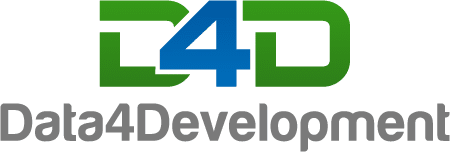10th Anniversary
The International Aid Transparency Initiative (IATI) has come a long way since the “Standard” was first introduced in the Netherlands. About 10 years ago, in May 2011, our CTO Rolf Kleef, with ‘Open for Change’, was co-organiser of the first Dutch congress about open data in development cooperation. The event was hosted together with the Dutch Ministry of Foreign Affairs (MoFA) and Partos, the Dutch association for development cooperation. The MoFA and the Foreign and Commonwealth Development Office (FCDO) -formerly known as (DFID)- were actually early adaptors to introduce IATI publishing for their fund recipients.
Now, almost 10 years later, 1,059,495 development and humanitarian activities are published in IATI by over 1.250 organisations around the world, and we are very proud to have been able to contribute to that result. At the same time, we are convinced that the future holds even more potential for IATI.
Worldwide Adoption of IATI
Let’s have a look at some of the most recent developments. Throughout Europe, we are seeing that more and more countries are starting to work with the IATI standard. For example, as part of their first virtual Day of Transparency in December 2020, the Italian Agency for Development Cooperation (AICS) was joined by staff from the IATI secretariat to celebrate the commitment to publish aid spending and activities to IATI.
Recently, the International Labour Organization (ILO) has joined as an IATI member. By becoming a member of this multi-stakeholder initiative, ILO can actively contribute to the governance and operationalisation of the IATI standard, its policies and tech infrastructure. Having the UN labour organisation on board as an IATI member can potentially bring new insights into the IATI debate in relation to labour-related data. Last month during a virtual conference organised by the Kreditanstalt für Wiederafbouw (KfW), a German state-owned development bank, industry experts were gathered from around the world to debate on remote management and the use of data and tech for this purpose. KfW took the opportunity to launch their KfW transparency portal which uses IATI data as a base. Alongside the typical financial data, this portal is an exhaustive open data bank with results of project evaluations, geodata and maps. It is precisely the combination of these data sets that will contribute to transparency. At the same conference, both our CEO and CTO were honoured to be presenting our work with IATI as well. Our CEO, Maaike Blom, presented a visualization layer on top of the whole IATI database, that provides easy access to the richness of all IATI data. Rolf Kleef, our CTO, participated in an open discussion analysing a portfolio of landscape-based collaboration programmes to explore the use of geo-data in combination with using IATI.
Open data portals in the international aid sector
More and more governments have open data portals to share their aid data and commitments to the international aid sector. Recently on IATI Connect, a list of open data portals making use of the IATI standard was shared for the community. This list is regularly updated as the number of portals that share and showcase international aid data is increasing. To not only provide access to selected open data, the Aid Information Data Analytics (AIDA) platform, a joint venture of Zimmerman and Data4Development, accesses the whole richness of all the available IATI data. For example, a policy officer at a Ministry can see which sectors their counterpart governments are funding worldwide. A person working at an Embassy or a country office can see a list of project activities related to that country with all stakeholders represented. And a communication officer for an NGO can search for new funders by selecting their worldwide project portfolio.
Where is IATI going
Last December, the IATI Members’ Assembly 2020, formed of all members of IATI, met to discuss the new strategic plan 2020-2025, including the recommendations on the budget and work plan proposed by IATI’s governing board. Over the next five years, working with IATI will rely heavily on strong core tools and platforms to underpin efforts towards improving the quality of publishing. By ensuring that existing tools & platforms you can use to publish are simple and accessible, IATI can continue to benefit many more different groups of users across the development community. Read the minutes of the last Member’s Assembly here.
With for example the Spreadsheets2IATI and the IATI Validator services, Data4Development has been able to help numerous publishers improve the use and the quality of their data. The next step for us is to increase the use of the IATI standard further by supporting more publication possibilities like with the publishing feature of Toladata. Data use will also increase through making the IATI data available for insight like with the AIDA platform. In a world where the use of data is becoming increasingly important, Data4Development and partners like TolaData and Zimmerman are committed to engage with a variety of stakeholders to further the strategic agenda of IATI in the upcoming period.
